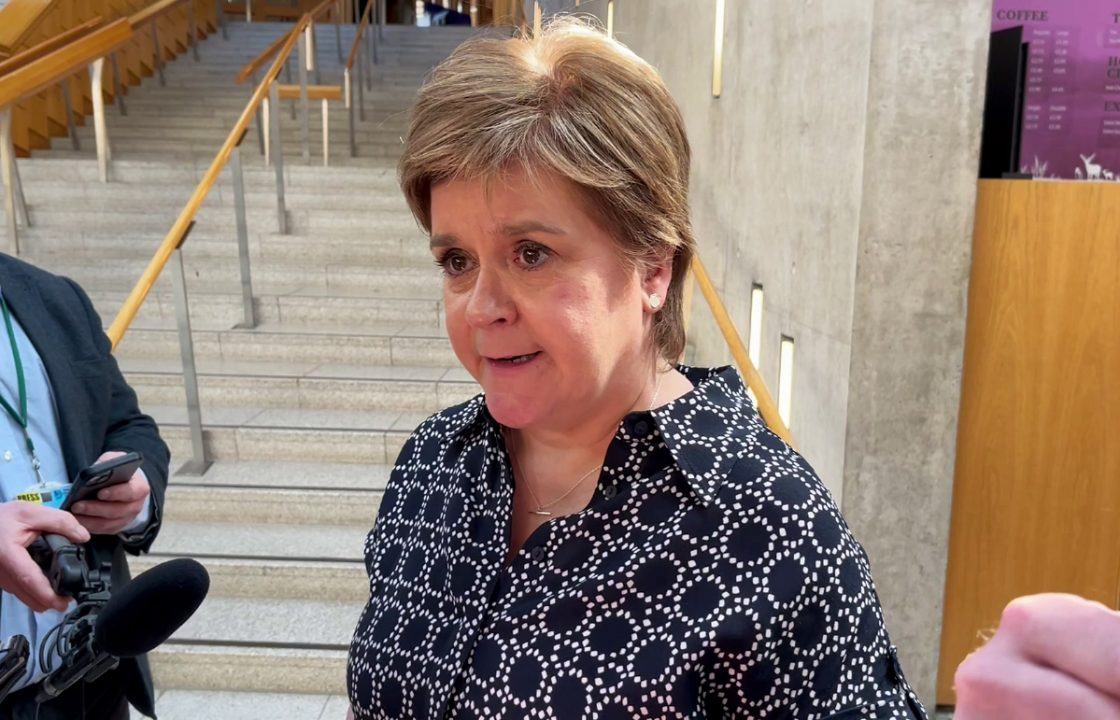Nicola Sturgeon has said she will vote against the Assisted Dying Bill at Holyrood on Tuesday.
The former First Minister said it was the “most difficult decision” she has had to make in her years as an MSP.
“I have voted against Assisted Dying when it has come before Parliament in the past,” she said.
“However, like others I have been deeply moved by some of the personal testimony in support of the Bill and have thought deeply about whether my views might have changed sufficiently to allow me to support this Bill to become law now – or even just to allow it to pass at Stage 1 in the hope that my concerns could be addressed through amendments.
“I have come to the conclusion that while some of the misgivings I have about the Bill in its current form could be addressed by amendments, some of my concerns are so fundamental that this would not be possible. It is for that reason I have decided to vote against the Bill tomorrow.”
The proposals would give people 18 and over at an advanced stage of a terminal illness the option of requesting help to end their life.
Sturgeon said she was worried about the change to the doctor-patient relationship and how it might impact society’s attitude to life and death, in particular to the importance of good end-of-life care.
But, she said, she had more fundamental concerns.
“I do not believe it will ever be possible to even identify, let alone guard against what is often described as internal coercion – a feeling on the part of terminally ill individuals that others might be better off if they were no longer here,” she said.
“I worry that older people in particular may be vulnerable to such a feeling.
“It would risk a situation in which a right to die might become, in the minds of some people, a perceived duty to die.”
She continued: “Secondly, I am deeply concerned that the definition of terminal illness in the Bill is too wide. There are many people diagnosed with terminal conditions from which they will not recover and which will eventually cause them to die prematurely – the definition in the Bill – who will nevertheless be able to live full and happy lives for many months, even years before their deaths.
“However, in the dark moment of a diagnosis – or in the aftermath of it – it may be difficult for them to envisage this. If assisted dying is an option, I worry that many people will choose to die more prematurely than they need to.”
The assisted dying legislation, brought forward by Liberal Democrat MSP Liam McArthur, is set to come before Parliament on Tuesday, May 13.
On one side, assisted dying advocates say people should have the freedom to choose a dignified death.
On the other, opponents say the bill could be too big a step and too concerning for vulnerable individuals.
Many Scottish political leaders, including First Minister John Swinney, Scottish Labour leader Anas Sarwar, deputy first minister Kate Forbes, and former first minister Humza Yousaf have already said they will vote against the legislation.
However, Swinney previously emphasised that he – and other major players – have only “one vote in the parliamentary consideration of this issue”.
Despite these voices of opposition, MacArthur said at the weekend he is “confident” the Bill will pass the first stage at Holyrood.
“I think the general mood is, while it will be close, I am confident the support is there to allow us to go through to the next stage,” he said.
“The conversations I have had over the past four years with colleagues now suggests there is more of a willingness to look for reasons to support rather than excuses to oppose.”
He added: “There are many colleagues who come at this issue with their own personal stories of losing a family member or a close friend to a bad death, therefore they view this issue through that prism, they recognise that the current ban on assisted dying is leading to too many instances where people are at the end of life with horrendous choices.”
Follow STV News on WhatsApp
Scan the QR code on your mobile device for all the latest news from around the country


 STV News
STV News

























